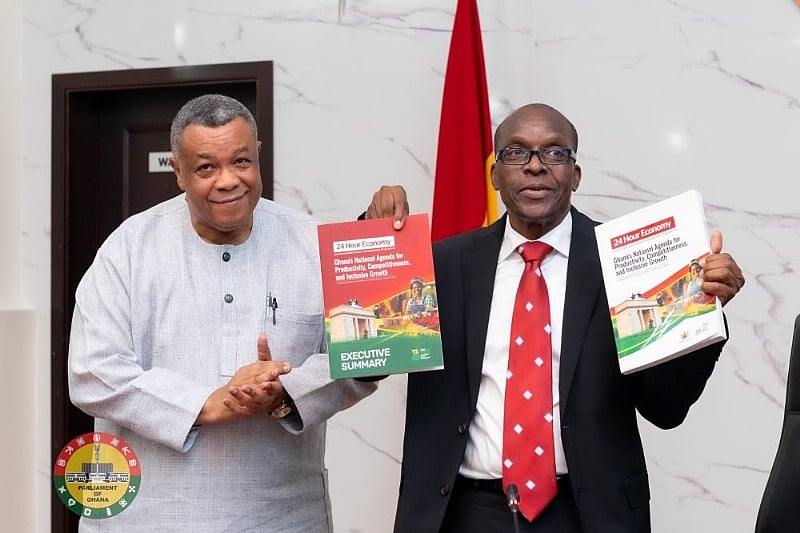The 24-Hour Economy initiative, a cornerstone of the John Mahama administration’s economic agenda, is poised to launch on Wednesday, July 2, 2025. This ambitious program, a key promise during the 2024 election campaign, aims to revolutionize Ghana’s economic landscape by fostering continuous operations across various sectors, including manufacturing, health, agriculture, services, and logistics. The core objective is to combat unemployment and significantly boost national productivity by optimizing operational hours and resource utilization. This round-the-clock economic activity is expected to generate new employment opportunities, increase output, and stimulate economic growth across the country.
The official announcement of the rollout was made by Goosie Tanoh, Presidential Advisor on the 24-Hour Economy, during the presentation of the comprehensive policy document to the Speaker of Parliament. This document outlines the strategic framework, implementation plan, and anticipated outcomes of the initiative. The phased rollout will initially involve government institutions, select state-owned enterprises, and private sector partners. This collaborative approach aims to create a robust and sustainable model for 24-hour operations, setting the stage for broader adoption across the economy.
Demonstrating strong institutional leadership, the Parliamentary Service will be among the first public entities to embrace the shift-based system. Speaker of Parliament, Alban Bagbin, confirmed that Parliament would transition to a full 24-hour operational framework to address the increasing demands of the legislative process. This transition signifies a commitment to maximizing productivity and responsiveness within the government itself, serving as a model for other institutions to follow.
The shift to a 24-hour operational model within Parliament will necessitate extended working hours for parliamentary staff, with some potentially working from 8:00 a.m. to 10:00 or 11:00 p.m. This extended schedule is intended to address the mounting workload and ensure the efficient handling of legislative matters. Speaker Bagbin highlighted the significant increase in pressure on parliamentary staff, particularly following the recent change in House sitting hours. He emphasized that the new shift system is a crucial step to maintain effectiveness and responsiveness in the face of growing complexities and volume of legislative work.
The transition to a 24-hour work schedule within Parliament will also create new job opportunities, further contributing to the initiative’s overall goal of reducing unemployment. As the legislative workload continues to expand, additional staff will be required to support the extended operational hours, providing employment opportunities for Ghanaians and boosting overall economic activity. This aligns with the broader objective of the 24-Hour Economy initiative to stimulate job creation and economic growth.
The 24-Hour Economy programme will be supported by a range of incentives designed to encourage businesses to adopt shift systems. These incentives will aim to create a conducive environment for businesses to transition to 24-hour operations, enhancing productivity and fostering sustainable employment nationwide. The programme envisions a vibrant and dynamic economy operating around the clock, unlocking new opportunities for growth and development. Through this initiative, the government aims to transform Ghana into a more competitive and productive nation, creating a sustainable path towards economic prosperity.


